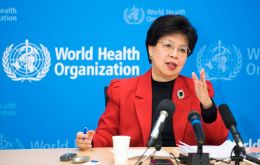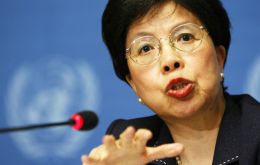MercoPress. South Atlantic News Agency
Tag: Dr Douglas Bettcher
-
Wednesday, July 8th 2015 - 01:05 UTC
WHO: Stepped up government tax action needed to curb tobacco epidemic

Too few governments levy appropriate levels of tax on cigarettes and other tobacco products. They therefore miss out on a proven, low-cost measure to curb demand for tobacco, save lives and generate funds for stronger health services, according to the World Health Organization’s Report on the Global Tobacco Epidemic-2015.
-
Friday, May 29th 2015 - 09:22 UTC
WHO calls for action against illicit tobacco trade on World No Tobacco Day

Eliminating the illicit trade in tobacco would generate an annual tax windfall of 31 billion dollars for governments, improve public health, help cut crime and curb an important revenue source for the tobacco industry. Those are the key themes of World No Tobacco Day on May 31 when the World Health Organization will urge Member States to sign the Protocol to Eliminate the Illicit Trade in Tobacco Products.
-
Thursday, May 29th 2014 - 02:45 UTC
WHO calls on countries to raise taxes on tobacco to prevent addiction

On World No Tobacco Day (31 May), WHO calls on countries to raise taxes on tobacco to encourage users to stop and prevent other people from becoming addicted to tobacco. Based on 2012 data, WHO estimates that increasing tobacco taxes by 50%, all countries would reduce the number of smokers by 49 million within the next three years and ultimately save 11 million lives.
